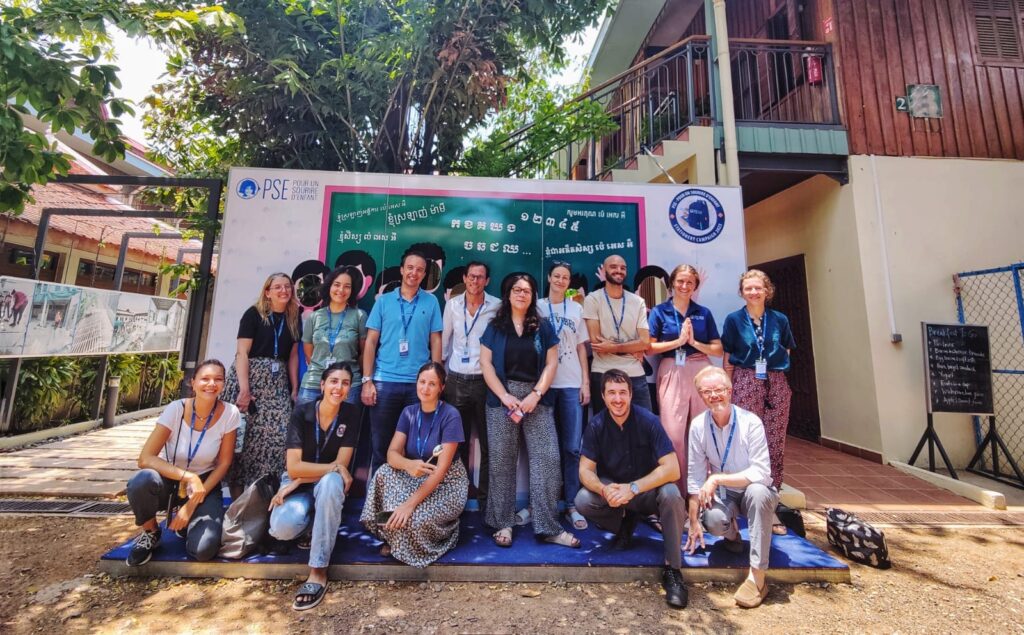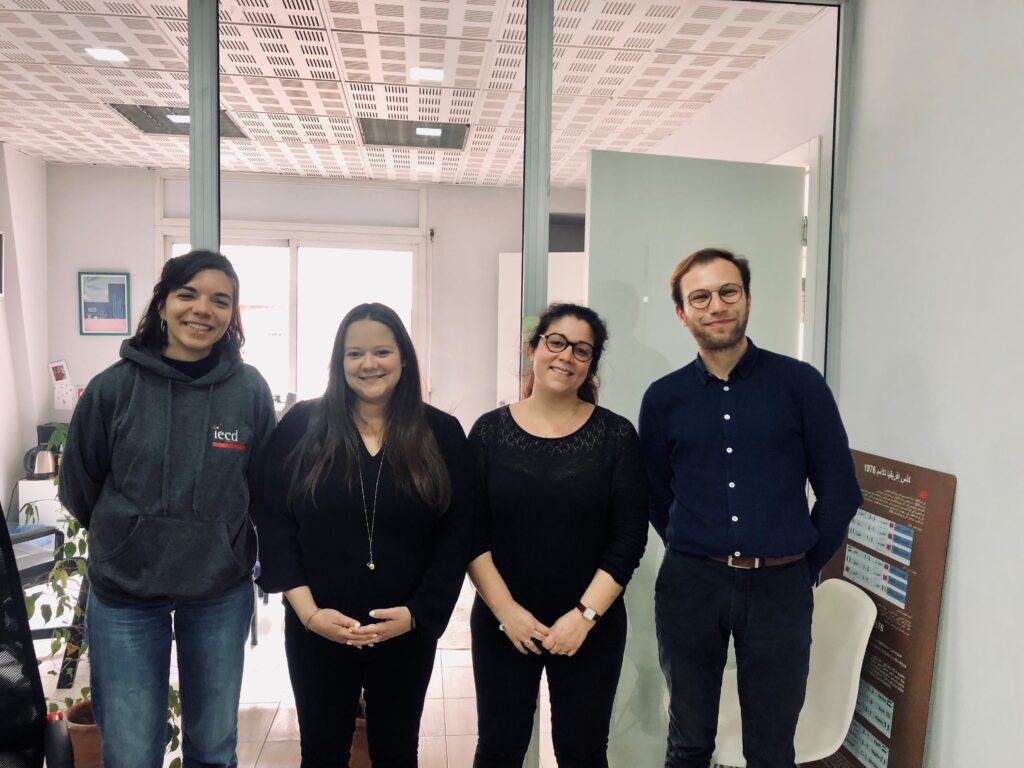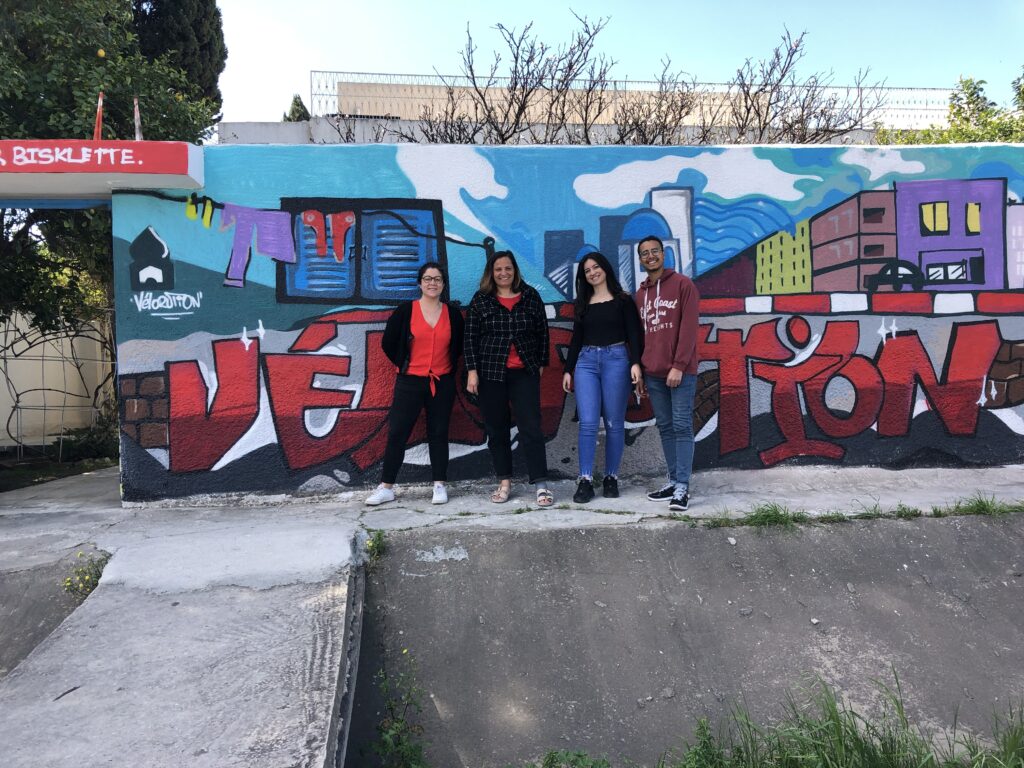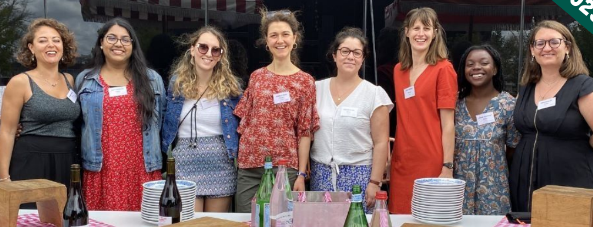Volunteering has many roles and many missions. Through this interview, Pauline, volunteer project manager at La Guilde for two years, takes us behind the scenes of her position and tells us about the many facets of her role. Preparation for departure, careful monitoring of volunteers, management of partnerships and field missions... this discussion offers a concrete overview of the crucial work of volunteer mission managers, illustrating their contribution to young people, partner structures and more broadly to initiatives in favor of a more engaged world.

- Can you explain to us concretely what a volunteer project manager position at La Guilde entails?
As a volunteer mission manager, my role is above all to support the volunteer so that their mission can take place as best as possible. This involves support before his departure then throughout the mission and upon his return.
My work also consists of being available to partners and supporting them in the implementation of various volunteering schemes as well as in the creation of missions allowing them to welcome volunteers within their structures. We are in contact throughout the duration of the mission to ensure that everything goes well and react in the event of complications.
In general, we make ourselves available as much as possible so that the missions run as smoothly as possible, for both the volunteer and the partner.
- How do you ensure effective monitoring of volunteers during their mission abroad?
To begin with, I always contact the volunteers before the preparation for departure training (PAD) to introduce myself, congratulate them on their commitment to the mission and to ensure that they have started to fill in the requested information, while remaining available to them if they have any questions or concerns about what to do.
Then, I meet them in physics during the PAD, which takes place over several days. I prefer to see them several times, often at the beginning and at the end to manage the flow of information they received during these few days and answer their questions about it, if there are any. It's also a good time to ask them about what's next, whether they've found accommodation, whether they've found out about the country they're flying to... We also offer it to them, if they do. wish to give us news, by sending us photos and videos of their missions and projects on site.
The idea is to really listen to them and show them that they can confide in us and alert us about anything, of whatever nature!
During their missions, we keep in touch thanks to what we call assessments, which allow us to monitor the progress of both the volunteer and the mission. For civic services and international solidarity volunteers (IVS), the first assessment is carried out after 1 months of mission: we ensure that during these first three months everything is going well, if the volunteer is well integrated, how is that? happens for him on a personal level. If things are not going well, we offer them meetings to explore it further and discuss it together.
For VSIs, there is another assessment at 6 months of mission then every 6 months until the end of their mission.

- How are relationships with your partners organized?
This varies from one partner to another. Most of the time we talk a lot by telephone and by exchange of emails. Concerning partners who welcome a large number of volunteers, monitoring is tighter. For example, with one of them we have a point every month. Monitoring is also closer with partners where we encounter more complex situations (on missions, the area in question, etc.).
In general, we try to have regular contact with our partners because it is important to have an idea of their own monitoring of volunteers as well. In short, having both sides of the story.
In addition to this, every year, we organize “La Fabrique du Volontariat” for our partners. It is a moment of meeting which allows us to strengthen cohesion, to exchange around thematic workshops but also to allow partners to discuss their experiences and possible improvements among themselves.
- Can you tell us about a situation where you had to resolve a conflict or difficulty with a volunteer or partner in the field? How did you handle this situation?
The majority of missions go very well but of course this can happen, especially when volunteers face intercultural differences, with a relationship to work, with customs different from their own.
It is therefore sometimes necessary to intervene to resolve misunderstandings, different visions or even conflicts. It is joint work on our part in conjunction with the partner to best prepare the volunteer, but also on their part to adapt to the environment in which they carry out their mission.
When the situation cannot be resolved at the local level between the host structure and the volunteer, we may have to intervene. Firstly, we took the time to study the feedback from both the volunteer and the host structure, if necessary we have the possibility of proposing the establishment of mediation in conjunction with the Manager of human resources at La Guilde, trained for this type of situation.
There may also be the case of health emergencies where, in cohesion with insurance companies, we support medical repatriations, emergency returns, etc. We are there to make the connection and best manage situations as quickly and calmly as possible.

- How are preparations for the departure of volunteers (PAD) organized? (themes, speakers, etc.)?
The PADs for VSIs take place over 4 days in person, the logistics being managed by our Volunteering HR manager. The objective of these preparations for departure is on the one hand to raise awareness of the Guild and the functioning of our center, to allow volunteers to exchange ideas with each other, to make them aware of the status of VSI, its involvement, its rights and duties but also raise awareness of good practices for their health and safety as well as understanding the risks within the mission.
For civic services, the PAD takes place over 2 days and has essentially the same objectives as the PAD VSI with a more educational dimension and awareness of the bases of international solidarity.
In both cases, we seek to support them as best as possible before they leave, by making them aware of the reality of a field mission and by finding answers to the questions they ask before departure.
- What are your strategies to ensure effective communication between volunteers in the field, partners and you, the team based at La Guilde headquarters?
On site, to ensure effective communication, we have field coordinators (Lebanon, Senegal, Cambodia and soon South America and Central Asia). Each coordinate spends a month at headquarters to better understand the organization and get to know the team here before heading out into the field. They are real relays between our headquarters team and the volunteers and partners on site.
Beyond that, we have an on-call number in the event of an extreme emergency, on which we can be reached 24/24. Otherwise, we can be reached for any other reason during our working hours.
Also, we are in the process of setting up an afternoon per week dedicated to volunteers during which they can make an appointment, apart from urgent matters, if they want to discuss, take stock, share progress of their projects.
- You were also able to go into the field to visit certain partners and volunteers, why is this essential for your mission?
At La Guilde, we are lucky to be able to go into the field at least twice a year. This is essential to ensure proper monitoring and promote cohesion with partners and volunteers. This allows us to really discover the places and the daily life of the volunteer, the projects on which he is deployed, the local team with whom he works and with whom we have relatively little contact. It is essential for me to meet them.
Field missions are highlights of the year, it also allows you to discover many more things than in a video meeting, in the positive but also in the negative. Some things are easier to express live. And then it's obvious that when we meet people “in real life”, the relationship improves and is necessarily more authentic, which subsequently makes support easier. Most of the time the volunteers are happy and proud to show us their projects and their missions. This makes things more concrete for us, and it allows us to see the real impact that this has over the year on our partners and the structures that we support. It's very rewarding.


